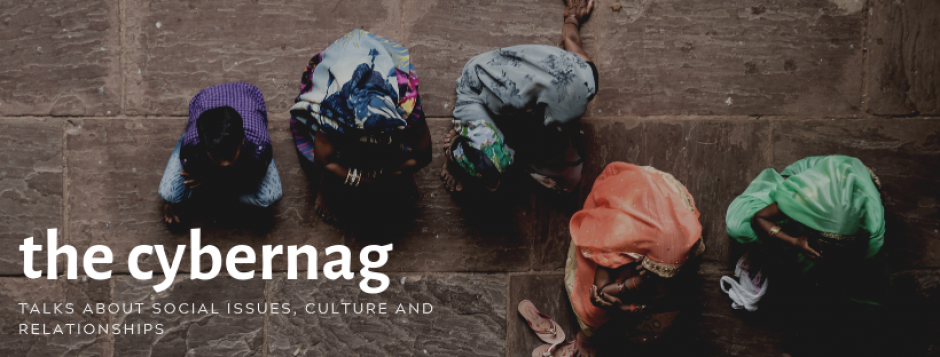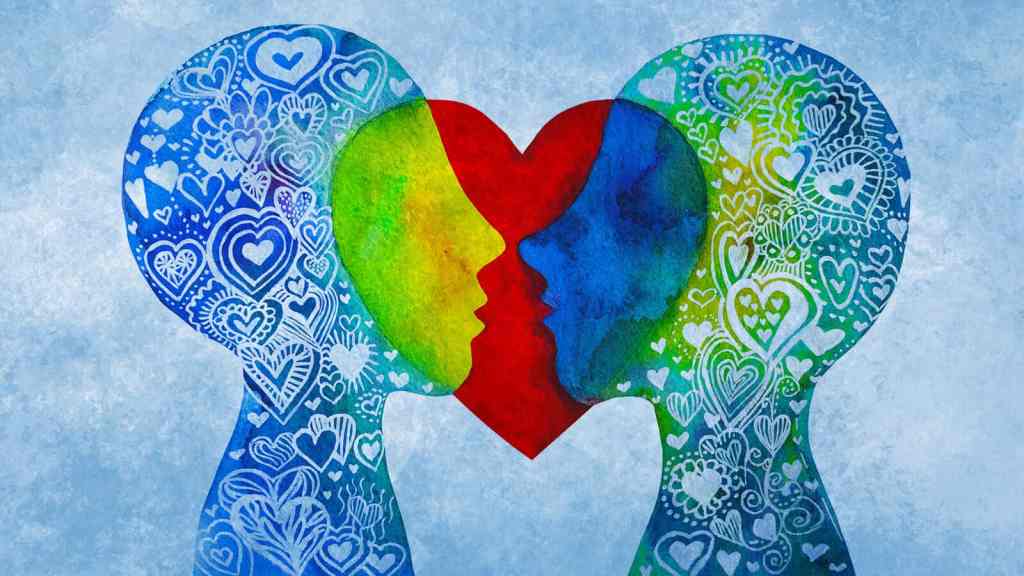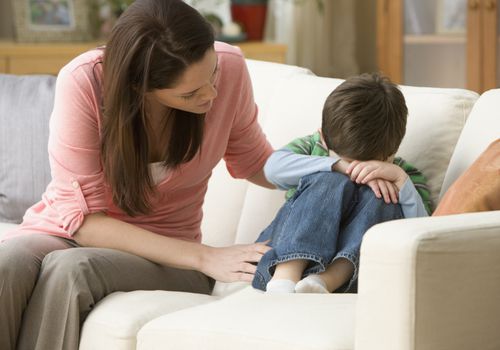The validation I am writing about in this post is not about the endless number of OTPs — that have taken over our online lives — to get ‘validated’ as the legitimate user, or getting our documents vetted and checked for authenticity. It is about real-life ‘validation’ of our emotions, actions, suffering, and more. Let us say it is authentication of an emotional kind.
- ‘Mamma, look at my drawing! I have drawn you!’
- ‘I have been overlooked for a promotion for the third year in a row. I felt so humiliated, I could cry.’
- ‘I felt so lonely after my mother died. I couldn’t make myself get out of bed for days.’
- ‘You yelled at me in front of all the guests! I could have died of embarrassment.’
- ‘Doesn’t this colour suit me? My sister told me it looks ghastly on me!’
All the above statements are cries for validation. There are two ways a person can react to them – either offer compassionate and sincere validation or a thoughtless and possibly cruel invalidation. None of them require anything more than a hug, a sympathetic statement, or an apology as in the fourth case. However, an invalidating response could crush the person and make them doubt their judgment and worth.
Go on, try, and give your responses to the above statements, and check with the two articles I have linked below to see how you fared. Curiously, some responses which are offered with the best of intentions to validate someone can turn out to be invalidating!
This article tells us about the art of validating and the various levels of validation, depending upon the need. And this article tells us the six most invalidating responses that need to be avoided at any cost.
Let us now look at validation and invalidation in a little detail.
Is it an emotional vulnerability that makes people seek validation? Not necessarily. Everyone wants to feel loved, appreciated, and valued. The dictionary defines ‘validate’ as to prove or confirm that someone is valuable or worthwhile. Doesn’t that explain it all?
Here, we have to understand that validation is different from sympathy, pity, love, agreement, or problem solving, though there is a little bit of all these in sincere validation. All one has to do is listen with empathy and accept that person’s internal experience as valid and understandable. That in itself is a very powerful affirmation as it shows that you care and that they are not alone.
It is said that a moment of timely validation, builds a wealth of happiness. According to some studies, when someone feels validated, chemicals related to feeling ‘connected’ are released. It is one of the best tools to help someone manage their emotions, especially those who are sensitive. This validation can come from the self or others. It can be for the smallest of things, and it can be for the most colossal feeling.
Validation can and should also come from the self as it acts as a confidence builder and helps one to handle emotion. Validation doesn’t mean you like the emotion, or that you want it to stick around; it just means that you accept what you’re feeling.
A word of caution: Validation might be counterproductive in the case of needy and whiny and emotionally insecure people, who look for external approval for every little thing. Likewise, those who feel that self-validation is enough for them and they do not need validation from others, might end up validating every emotion they feel, closing the door to criticism and feedback from others. The trick is to strike a balance between the two.
Talking of invalidation, itis the act of denying, rejecting, or dismissing someone’s feelings or experiences by implying that their experience is insignificant, unacceptable, even imaginary, or exaggerated. Invalidation by self might sound contrary, but it is more common than we realise — being critical of our feelings and our consequent actions which might have caused us shame, loss of face, or worse. Sometimes self-invalidation can be even more damaging than that by others. In short, invalidation of any kind is believed to be a major contributor to emotional disorders in people.
That is why psychologists recommend self-compassion. It is a sort of the first line of defence, which involves being understanding toward ourselves when we suffer, fail, or feel helpless, instead of being critical. This helps in building self-esteem and confidence.
The need for validation starts early in life. Children’s emotional experiences beg the validation of their parents and adults in authority including teachers. As they grow, the kind of validation they need may change, but it is still based on emotions and actions prompted by events and experiences.
Sincere validation from a healthy support group can go a long way in helping the person heal and feel worthy. Sometimes, the one who has been validated might begin to reflect on the experience to get a better perspective, and even decide that it is not worth stressing about. Without validation – whether from self or others — such introspection and reflection are not possible.
Now let us look at some larger and long-standing scars and wounds that are begging for validation. The problem arises when we look for validation from the very person(s) either closely connected to the event or is the cause of our trauma and ordeal. This validation can be the most difficult of all to get. This is either because a) they are insensitive to our emotions b) they have deliberately hurt us and so have no intention of validating c) they feel guilty for their action, but their ego stops them. This often results in the person declining to engage with us, or summarily invalidating our feelings.
So thwarted, we might turn to someone else who is close to us. But one has to choose the confidante wisely. If it is a family member or a common friend, the validation might not come easily as they might feel conflicted between us and the person who caused the hurt and might even end up invalidating us unknowingly. It can be a shattering experience after laying our vulnerability open to them.
Read this article to know what not to say while trying to validate someone.
This explains why and how most parents often unknowingly invalidate their children’s feelings. Depending upon individual children, they might grow up with emotional insecurities and refrain from putting their opinions or feelings forward or, turn into insensitive invalidators as adults.
While on the topic, it is not just individuals who seek validation, but sometimes an entire community, people, and even nations need validation of their collective experience. The Holocaust victims, the descendants of the Africans who were taken as slaves to western countries, the #KashmiriPandits who were victims of genocide in the 90s, and the victims of political turmoil and war – all seek validation of some kind. In such colossal scales of trauma and tragedy, invalidation is highly damaging and demoralising.
Acknowledgment of such a colossal wrong is only right and fair, even if it cannot erase the past suffering. East Germany had at least apologised to Israel and Jews the world over in 1990 for the Nazi atrocities and the horrors of the Holocaust. But many other groups, including the Kashmiri Hindus, have largely only got invalidation at the global level. While discussing this topic, I remember a friend carelessly dismissing the latter’s travails as ‘a big political hype’.
Can validation remedy the feeling of hurt or injury? Well, not always; maybe not even seldom. But like a salve that, while not healing the wound, offers soothing comfort, validation helps to smooth the hurt, settle feelings of insecurity, and provides assurance that someone has our back. That is a very big reason for us to learn the art of validation and the pitfalls of invalidation – so that we can have the back of someone who needs our support.
Disclaimer: I am not a psychologist, and the post is the result of personal observation and extensive reading on the subject. It is by no means exhaustive as it is a vast topic.
Images: Top: https://www.powerofpositivity.com/ Bottom: https://www.verywellfamily.com/









[…] invalidation undid months of painstaking progress, setting me back several hundred steps. My post on validation explains how traumatic invalidation can […]
LikeLike
The validation and emotions are directly related. It’s in the genes how you react to certain thing and validate which can help a person emotionally. But there are many people whose intentions are always to hurt someone by validating. Choice is your “self validation”. So that you are not bothered to get hurt or get over exited.
LikeLike
Very true, Rameshwar. We react according to our reactions, but the best way is to not react while validating. Which means we don’t get involved with the emotion of the other person but try to be supportive, for we usually only validate those whom we care about.
LikeLike
Thank you. Great explanation. 🙏
LikeLike
You are welcome, Rameshwar.
LikeLike
Interesting, insightful!
LikeLike
Ah, such a short comment. Looks like it didn’t past muster 🙂
LikeLike